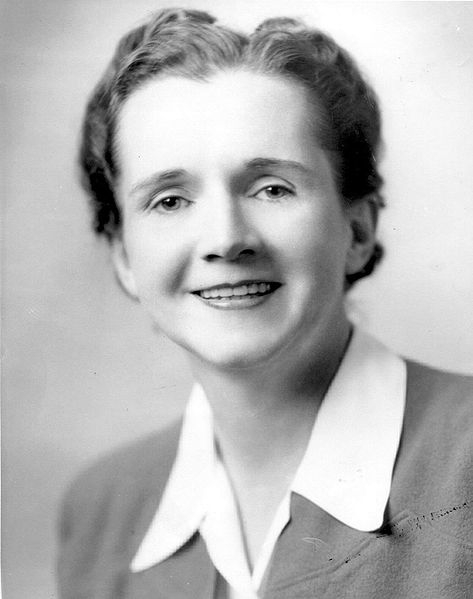Posts Tagged: Pamela Ronald
Science provides facts for Hawaii GMO debate
The story describes a lone councilman's effort to get science-based information in face of vocal opposition to GMOs among advocacy groups. The lack of input from farmers and scientists on policy issues that affect food and farming has rankled many agircultural scientists, including Pamela Ronald, professor in the Department of Plant Pathology at UC Davis. She compared some advocacy groups' resolute objections to GMOs to people who don't believe the world climate is changing despite the scientific proof.
“Just as many on the political right discount the broad scientific consensus that human activities contribute to global warming, many progressive advocacy groups disregard, reject or ignore the decades of scientific studies demonstrating the safety and wide-reaching benefits” of genetically engineered crops, Ronald said.
Hawaii has a unique status in the GMO debate. It's the only American state where farmers grow genetically modified fruit. After an outbreak of papaya ringspot virus in the mid-1990s, scientists used biotechnology to insert a gene from the virus itself into the papaya that gave it immunity and saved the crop.
The article outlines research showing that many of the claims made by GMO opponents do not stand up to scrutiny. Experts conceded that the research doesn't prove genetically engineered food could never cause harm, but the risks of such crops could be reliably tested, and they had so far proved safe.
“With scientists, we never say anything is 100 percent certain one way or another,” USDA-ARS research molecular biologist Jon Suzuki said. “We weigh conclusions on accumulated knowledge or evidence — but often this is not satisfactory for some.”
The GMO ban was approved by Hawaii's County Council by a 6 to 3 vote and on Dec. 5 signed by the Big Island's mayor.
Would Rachel Carson embrace GMOs?
Rachel Carson, the author of "Silent Spring," a book credited for advancing the environmental movement in the U.S., would have supported the use of genetic engineering in agriculture, says Pamela Ronald, professor in the Department of Plant Pathology at UC Davis. Ronald considered the possibility in an op-ed article published in Forbes.
Carson envisioned harnessing the knowledge of biological diversity — entomology, pathology, genetics, physiology, biochemistry and ecology — to shape a new science of biotic controls that would help control weeds, diseases and pests without further damaging the environment, Ronald wrote.
"Her dream of a science-based agricultural system may come as a surprise to those who believe that sustainability and technology are incompatible," the article says.
In her UC Davis laboratory, Ronald has genetically engineered rice that tolerates flooding and resists disease.
"I have to believe that, if Rachel Carson were alive today, she would reject the anti-science, fear-mongering of anti-GE campaigners," Ronald said.
We All Have It: Innate Immunity
What do flies have in common with us? For one thing, an innate immune system mechanism to detect and fight off invaders that threaten our...

Immune system of the tiny Drosophila plays a big role in host defense. (Photo by Kathy Keatley Garvey)
UC scientist tries to refute 'woo woo pseudoscience'
UC Davis plant pathologist Pamela Ronald appeared on the Dr. Oz television show, in which the medical personality promised to tell his audience what they need to know about GMOs.
Ronald was one of three guests, and the only one to support the production and consumption of genetically modified food.
"It was a tough go," Ronald wrote in a Tomorrow's Table blog post about her television appearance. "I did my best to refute the worst 'woo woo pseudoscience,' but it was difficult."
She pointed out on the program that, after 14 years of GMO consumption - primarily in food ingredients made from canola, soy beans, sugar beets and corn - there has been not a single instance of harm to human health or the environment.
However, Ronald's point was countered on the program by Jeffrey Smith, an anti-GMO activist, who said GE crops cause infertility, organ damage and endocrine disruption. Ronald said Smith's information doesn't have a scientific basis.
"We need to make policy based on the best science," Ronald said. "I would go with scientific information rather than ideas that have been put forth by non scientists."
Ronald referred viewers to three websites that she said contain science-based information about GMOs:
Scientists unravel mystery of disease resistance
Even though it's been about 1 billion years since plants and animals parted ways from their common ancestor, scientists have learned that over the eons they developed similar mechanisms for detecting microbial invasions and resisting disease, according to a study published in the journal Science.
The article, written by UC Davis plant pathologist Pamela Ronald and Scripps Research Institute mammal geneticist Bruce Beutler, describes how researchers used common approaches to tease apart the secrets of immunity in species ranging from fruit flies to rice. It also forecasts where future research will lead, said a UC Davis news release.
News about the scientific discovery was picked up widely by medical and scientific websites and blogs, including
“We now know that plants and animals respond to microbial signature molecules using analogous regulatory modules, which likely came about as a consequence of convergent evolution,” Technology Today quotes Ronald.
Medical Daily noted that the discovery will likely help future researchers find new drug targets to control deadly bacteria for which there are currently no effective treatments.
The paper in Science is dedicated to Julius Rothstein (1830-1899) and his wife, Fanny Rothstein née Frank (1834-1911), the great, great grandparents and last common ancestors of the authors.

The lineages of humans and mice diverged 60-120 million years ago.



